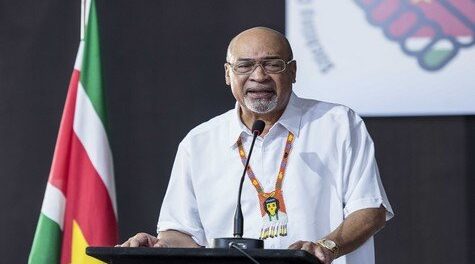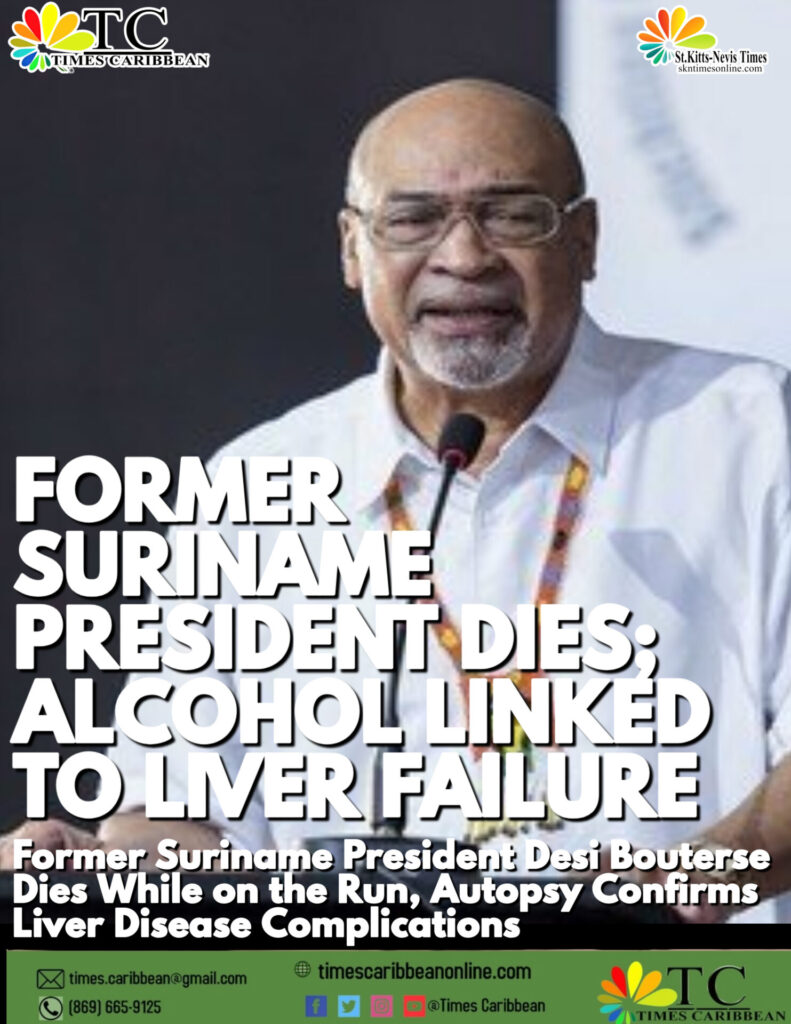Former Suriname President Desi Bouterse Dies While on the Run, Autopsy Confirms Liver Disease Complications

PARAMARIBO, Suriname, (CMC) – Former Suriname president and military leader Desi Bouterse has passed away due to complications of liver disease, according to a statement from the Public Prosecution Service (OM). Bouterse, who had been on the run since his conviction for serious crimes in December 2023, was reportedly found dead on Monday, December 23.
The OM disclosed that the autopsy report confirmed the cause of death as complications from liver failure resulting from severe liver fibrosis linked to chronic alcohol use. The report also indicated that Bouterse likely died on Monday or Tuesday last week.
Local newspaper de Ware Tijd reported that Bouterse’s body was recovered from his undisclosed hiding place on Tuesday and transported to Paramaribo early Wednesday morning. Police investigations into how the remains were moved from the hiding location to Bouterse’s residence in Leonsberg are ongoing.
Controversial Legacy and Funeral Arrangements
Bouterse, who led a 1980 coup that overthrew the democratically elected government of Prime Minister Henck Arron, has remained a divisive figure in Suriname’s political history. His regime is associated with the infamous December Murders of 1982, where 15 people, including journalists, lawyers, and human rights activists, were executed.
In December 2023, the Court of Justice sentenced Bouterse to 20 years in prison for his role in the killings, ruling that while he did not directly carry out the murders, he gave the orders and controlled the massacre from start to finish. He fled to evade imprisonment and had been accompanied by his bodyguard, Iwan Dijksteel, who also faced a 15-year sentence.
While the Bouterse family and the National Democratic Party (NDP) he founded hope for a funeral by January 4, the government has ruled out state or military honors for the former president. Foreign Affairs Minister Albert Ramdin confirmed that no foreign heads of state would be invited, stating it would be inappropriate to accord Bouterse such recognition given his criminal conviction.
The leadership of the National Army and the Ministry of Defense echoed this sentiment, emphasizing that Bouterse’s actions disqualified him from receiving military or state honors.
A Polarizing Figure in Suriname’s History
Bouterse’s rise to power through the National Military Council (NMR) in 1980 marked a dramatic turning point in Suriname’s political landscape, with the suspension of the constitution and parliament. Despite his leadership of the NDP and two non-consecutive terms as president, his administration and legacy remain overshadowed by the atrocities committed under his rule.
As the nation grapples with his death, the investigation into his final days continues, adding another layer of complexity to the story of one of Suriname’s most controversial figures.

Leave a comment
You must be logged in to post a comment.